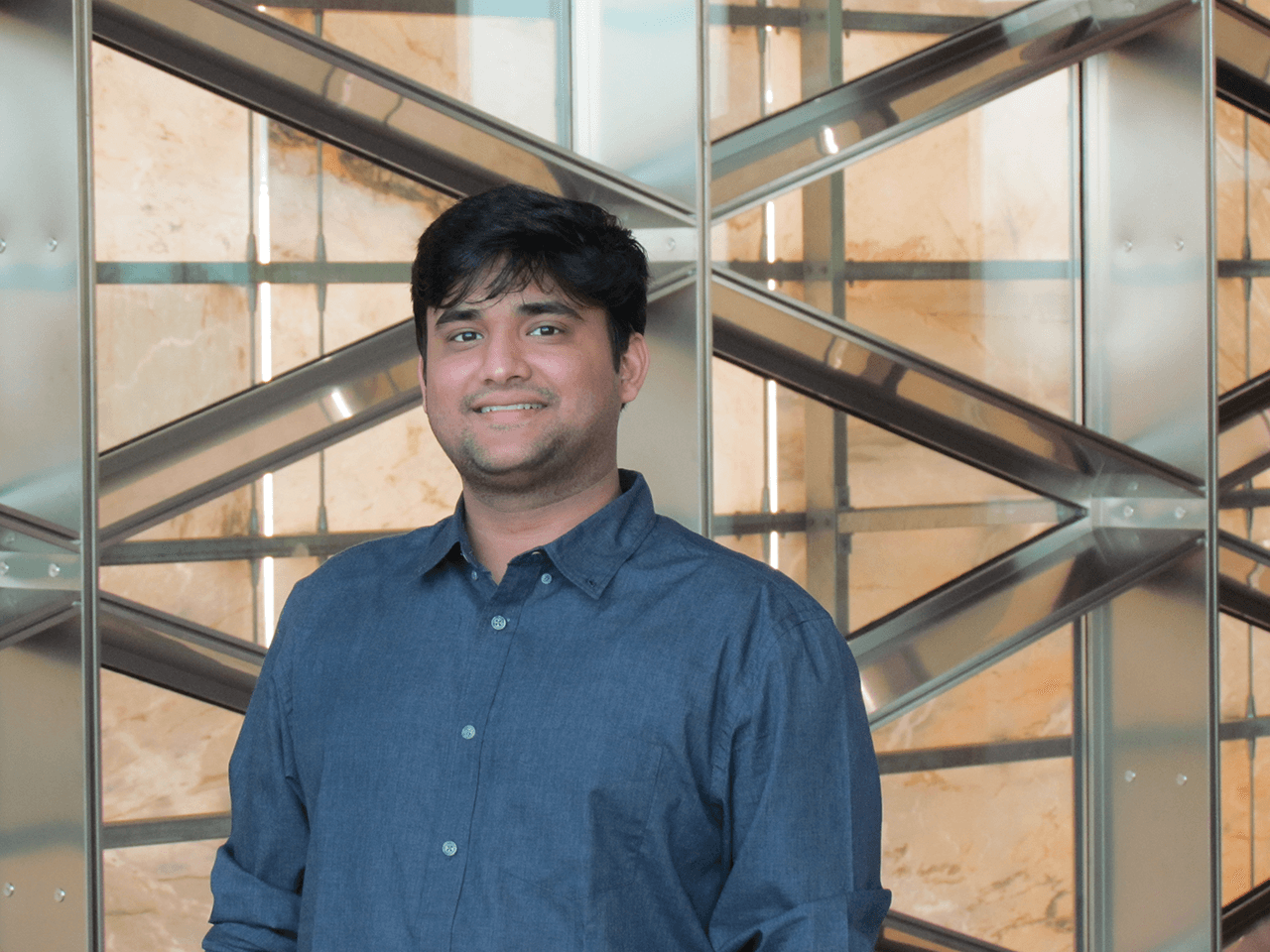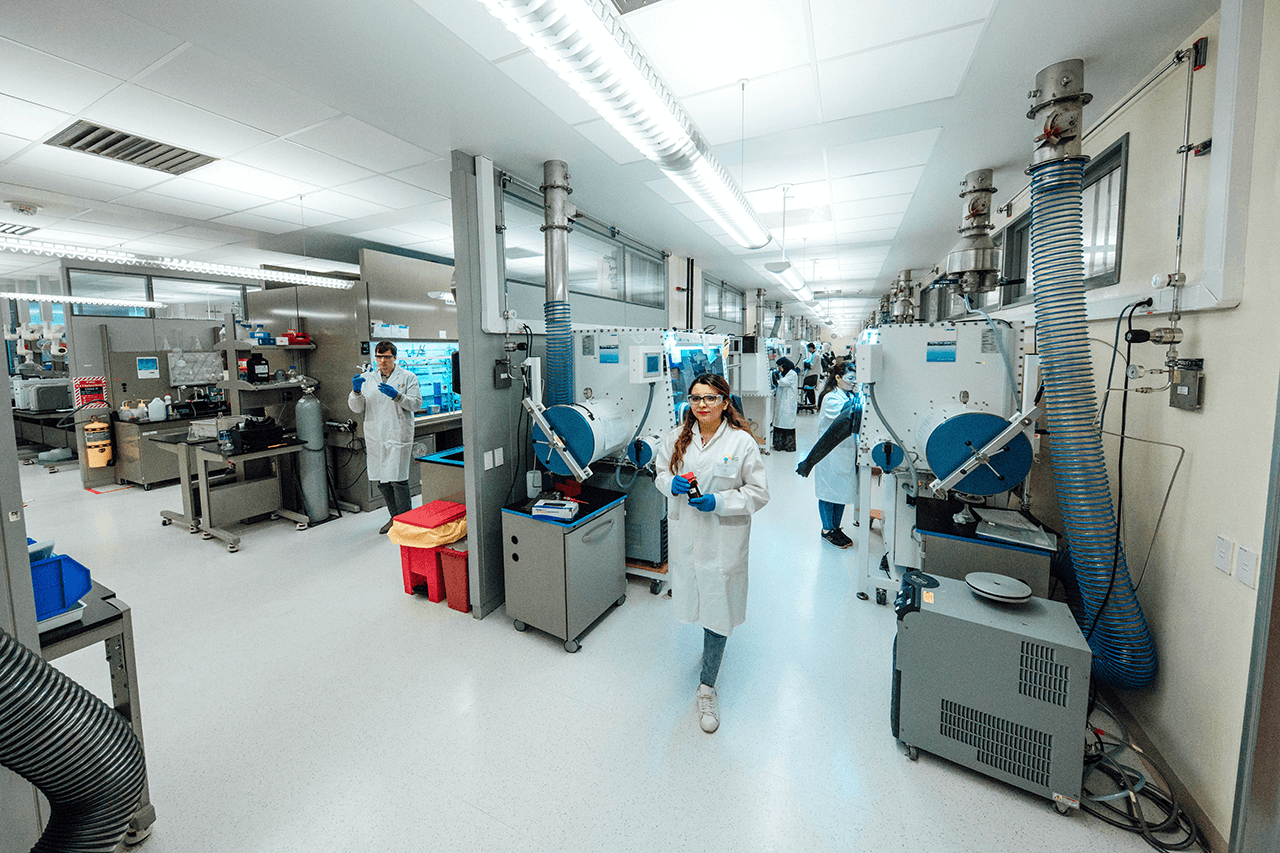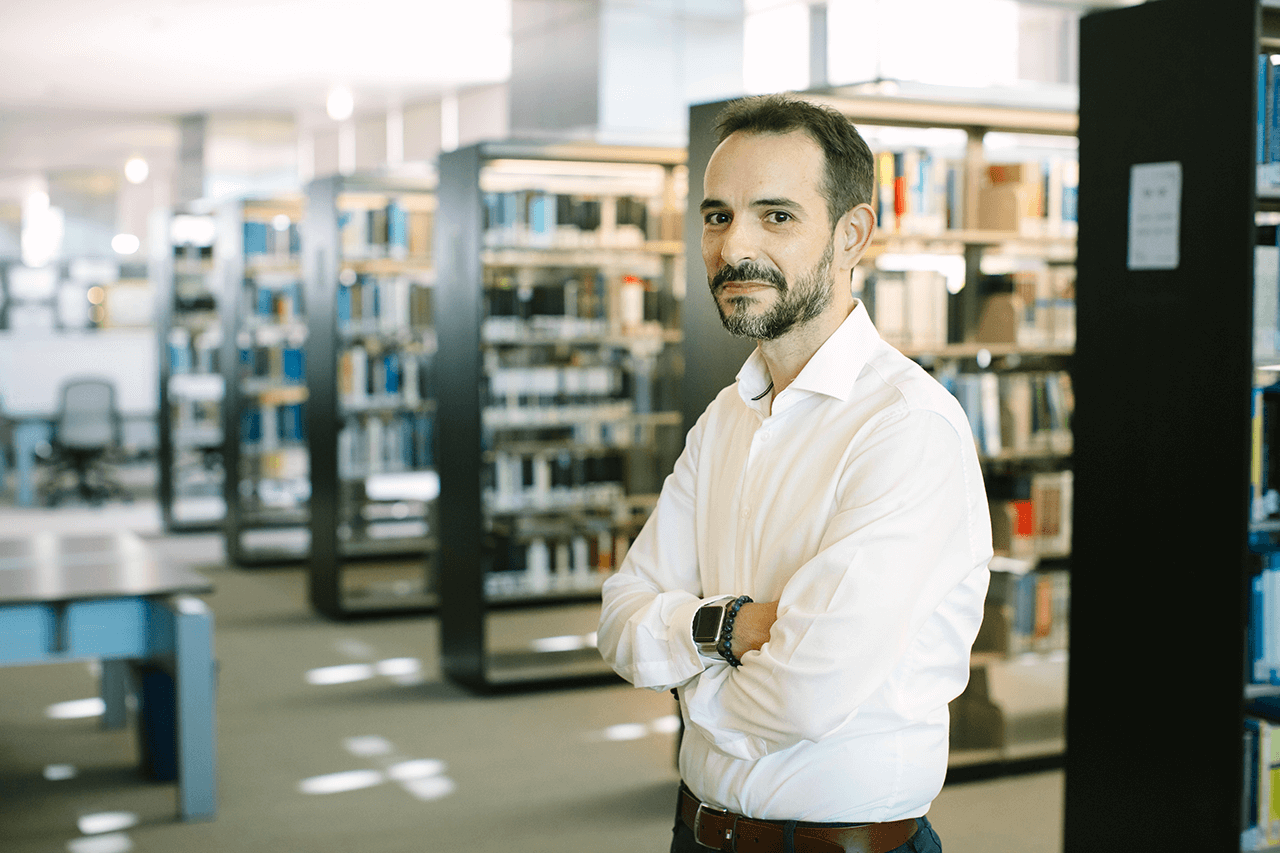Student Focus: Abhay Dokania

KAUST Ph.D. student Abhay Dokania works in the University's Catalysis Center under the supervision of Professor Jorge Gascon. Image courtesy of Abhay Dokania.
By David Murphy, KAUST News
"I always strive to increase my knowledge in the 'why' of things — be they scientific, political or cultural," stated KAUST Ph.D. student Abhay Dokania. Dokania works in the KAUST Catalysis Center (KCC), carrying out his Ph.D. research in chemical engineering in the Advanced Catalytic Materials research group under the supervision of Professor Jorge Gascon.
Dokania's research at KAUST focuses on conversion of CO2 to useful chemicals and specifically on the development of multi-functional heterogeneous catalysts that can convert carbon dioxide into industrially useful chemicals.
"By training, I am a chemical engineer, but currently I find myself standing at the crossroads of chemistry, chemical engineering and material science, which ensures that new perspectives are constantly revealed to me as my research progresses," he noted.
Before joining KAUST in 2018, Dokania obtained his bachelor's degree in chemical engineering from the Birla Institute of Technology & Science, Pilani in Goa, India, in 2013. Two years later he obtained his master's degree in chemical engineering from the Delft University of Technology (TU Delft) in the Netherlands. He then worked in the Netherlands as a research scientist for a year and a half after completing his master's degree. It was the presence of Gascon at TU Delft that was the defining reason for him choosing to join KAUST.

The world-class facilities of the University's Catalysis Center are pictured here. Photo by Anastasia Khrenova.
"I was first exposed to the heterogeneous catalysis field during my master's thesis," Dokania explained. "The idea that I can design and manipulate materials to influence chemical reactions is extremely intriguing for me. The excellent research facilities at the KCC and the fact that Professor Gascon — who was in my thesis committee during my time at TU Delft and is a renowned authority on heterogeneous catalysis — was now working there drew me to study at KAUST."
"[Since I joined KAUST,] not only have I been able to participate in extremely interesting research which has enormous potential to have a social impact, but I have also had the chance to hone my communication skills by participating in the local edition of the Falling Walls Lab," he continued. "I look forward to many more opportunities to learn and grow in the coming years."
Moving forward, Dokania would like to continue acquiring more knowledge in the area of heterogeneous catalysis design through participating in research that remains scientifically intriguing while also having a socioeconomic impact.

KAUST Professor Jorge Gascon's (pictured here) presence at the University drew current Ph.D. student Abhay Dokania to study at KAUST. File photo.
"I have been fortunate to partially contribute to the development of a new catalyst for CO2 utilization that performs much better than the current state-of-the-art [catalysts]. We intend to publish the results soon," he said.
"Global warming is probably one of the most urgent challenges that we as a society currently face. I intend to continue researching in this field [and] especially on methods to curb industrial CO2 emissions by converting [CO2] into useful chemicals," Dokania concluded.
Related stories:

